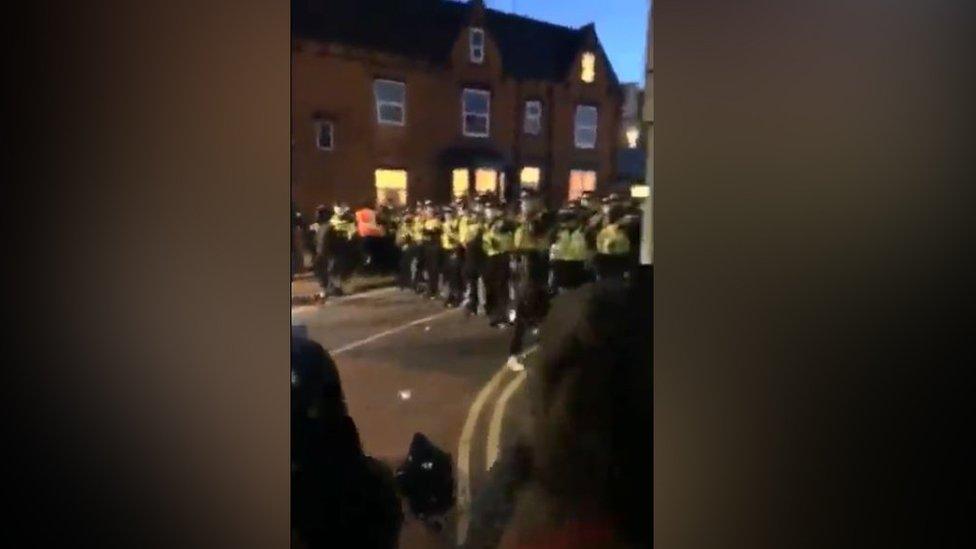Coronavirus: Leeds becomes 'area of concern'
- Published
- comments
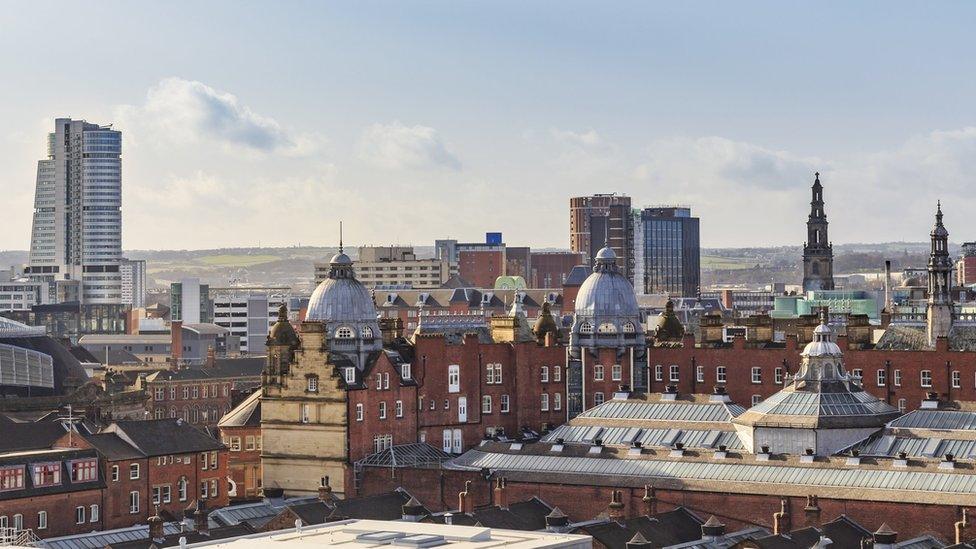
The infection rate in Leeds has been rising over the last few weeks, officials said
Leeds has been added to Public Health England's list as an "area of concern" following a rise in coronavirus cases.
The latest seven-day infection rate in the city has risen to 32.5 cases per 100,000 people.
The city council said being on the list did not mean more restrictions would be brought in immediately.
However, it did mean increased monitoring of cases and potential additional steps if the infection rate did not start to fall.
Council leader Judith Blake said: "We have been working tirelessly with our partners and communities, doing everything within our power to keep the spread of this virus under control and to ensure Leeds stays open.
"We completely understand that these past six months have put a tremendous strain on everyone in Leeds and that being able to get out, socialise and enjoy ourselves has provided a massive lift.
"But it is absolutely crucial that if we want to continue to do that, we all do it sensibly and responsibly and follow the latest guidance which is there to keep us all safe," she added.
The council said many of the cases may be linked to social interaction and leisure activities.
The spread was "broad and changeable across wards", it said, with increasing numbers detected in young people aged 18-34.
Extra Covid-19 restrictions imposed on some other parts of West Yorkshire are being eased.
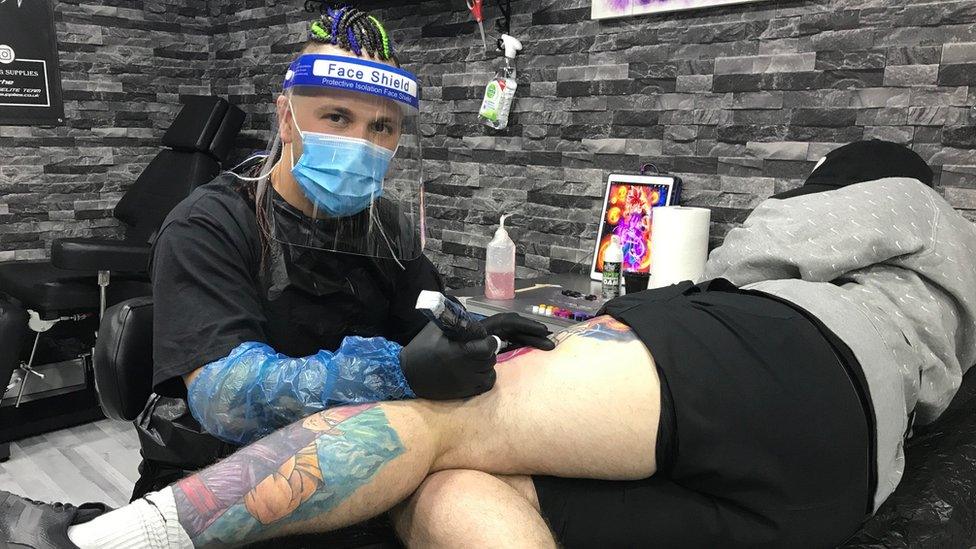
Tattoo artist Nico Pantu said his business had the equipment needed to keep customers safe
Local businesses expressed concern over the impact of a potential local lockdown in Leeds.
Nico Pantu, owner of Grimm Tattoo Studio, said: "If Leeds is to go back into lockdown, for us it could be catastrophic.
"Another lockdown would absolutely affect the whole city and most likely leave lasting damage to Leeds and its wide range of independent businesses."
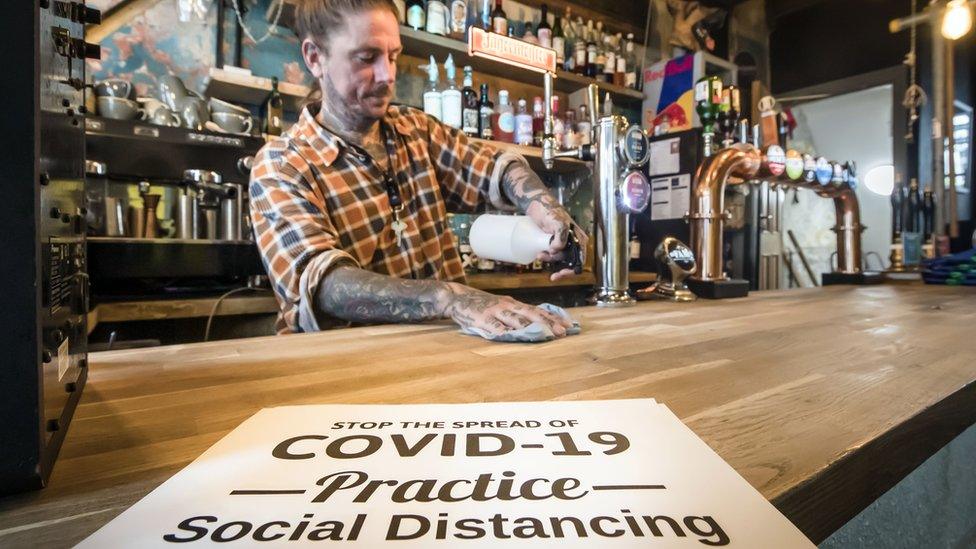
Bar owner Stuart Dixon said it took a month for business to build back up after pubs reopened
Stuart Dixon, who owns the Doghouse Bar and 212 Cafe Bar, said: "My concern is whether it will frighten people off again and ruin footfall for the bars, when we've literally just got back them to a position where we're managing.
"My worry would be if there's a local lockdown, are people going to not go out? That will destroy us. And will there be extra support from the government and council? Probably not.
"It's not their fault but if we have to keep shutting over the next year or so, I'm going to get the point where I'm just not going bother anymore because we'll just accumulate debt and then you end up just working to pay off debt."


West Yorkshire is a densely populated metropolitan county and some parts of it have been subject to restrictions because of coronavirus for a few weeks already.
Leeds has escaped these local rules because infection rates weren't high but that's changed.
The latest seven-day infection rate, external shows the city has 29.4 cases per 100,000 people, with 44 new cases on Wednesday, according to council figures.
The local authority expected it to be added to Public Health England's weekly watchlist of areas of concern.
This doesn't mean any further restrictions at this stage but they could be imminent if infection rates continue to rise.

Leeds, unlike neighbouring Bradford, has avoided stricter measures because its infection rates were much lower.
However, there were 261 cases in the week up until 30 August, up from 167 in the week up until 23 August.
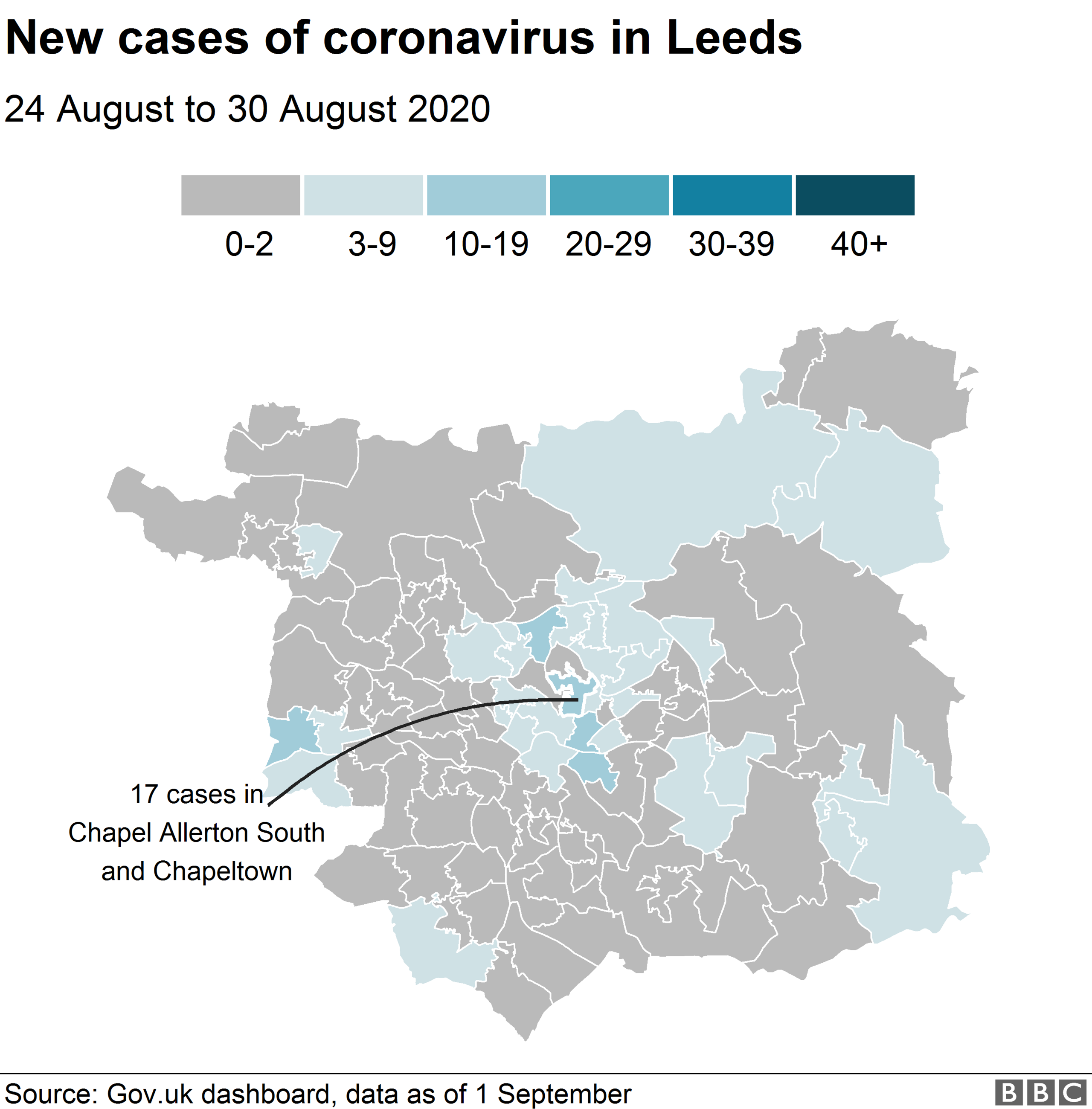

As an area of concern, Leeds would be subject to increased monitoring and could face additional measures if infection rates do not fall.
Officers issued seven fines to organisers of illegal events over the Bank Holiday weekend.
Prof Robert West, from University College London's Institute of Epidemiology, was asked whether issues in the city were "inevitable" following local outbreaks across West Yorkshire.
He said: "The problem is that this remains a very infectious virus and what that means is that if you're near someone, with someone who has it, there's a good chance you'll get it."

SCHOOLS: Which are re-opening, when?
SOCIAL DISTANCING: What are the rules now?
LOOK-UP TOOL: How many cases in your area?

Last month, the council said it was introducing "a series of targeted preventative steps" following a cluster of cases in parts of Leeds.
However the most recent rise is not isolated to specific parts of the city.
A range of measures are now to be introduced including additional mobile testing units, door knocking in areas of high prevalence, and officials will work with bars, venues and restaurants to make sure they follow Test and Trace guidelines.
The authority will also work with West Yorkshire Police and community organisations to discourage gatherings and house parties, as well as working with schools, colleges and universities to try and ensure a safe return to education.
People have been urged to follow guidance on social distancing, hand-washing, and wearing face masks while those with symptoms of the virus have been told to stay at home.
The council's public health director Victoria Eaton said: "We've seen a tremendous amount of collective determination from people in Leeds to keep their city and each other safe through this crisis."

Follow BBC Yorkshire on Facebook, external, Twitter, external and Instagram, external. Send your story ideas to yorkslincs.news@bbc.co.uk or send video here.
- Published2 August 2020
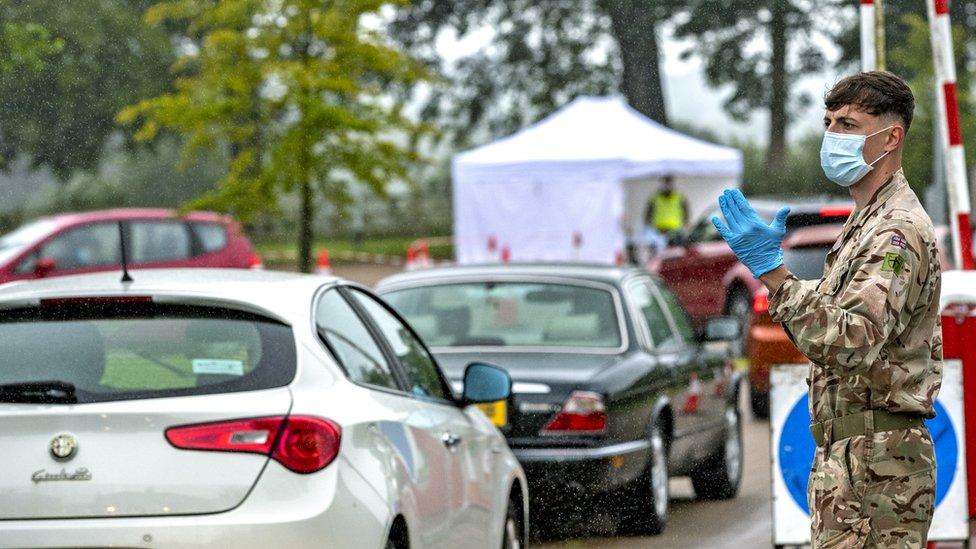
- Published2 September 2020
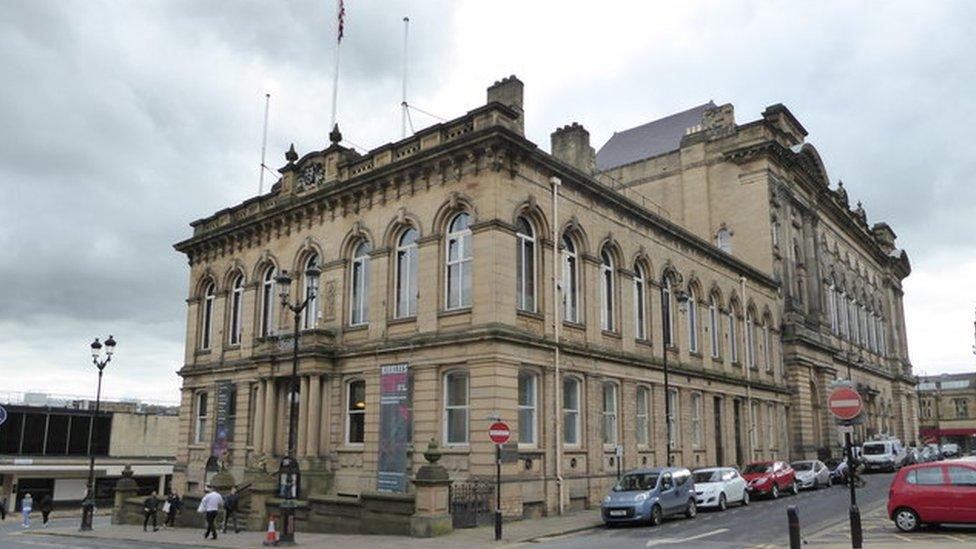
- Published1 September 2020
